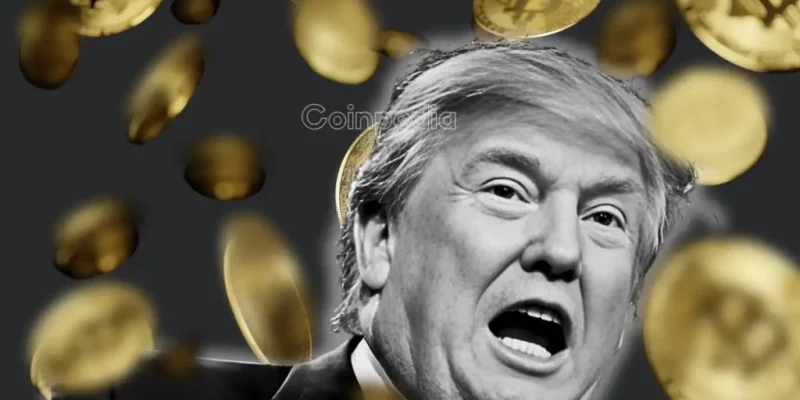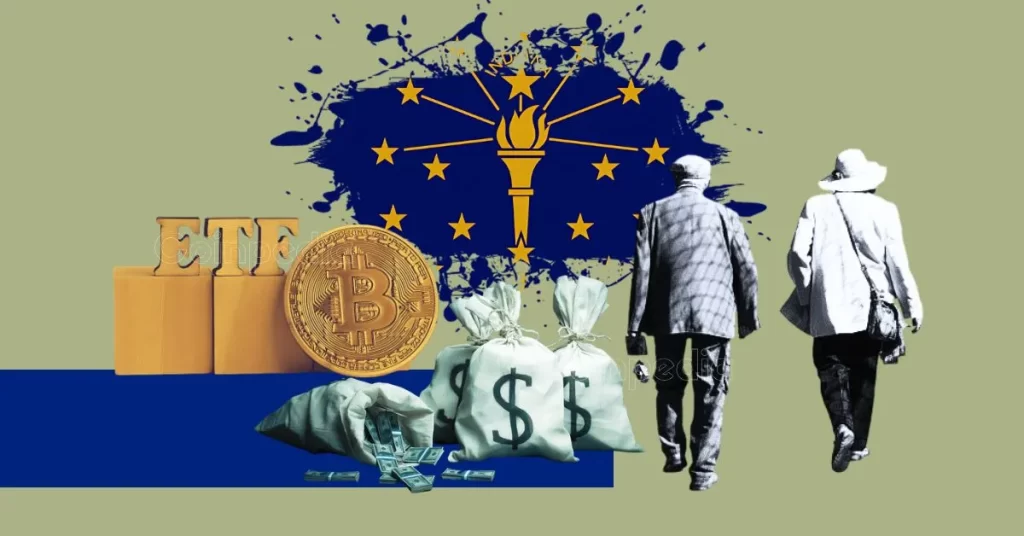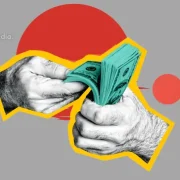
The post Is the Government Shutdown Over? Senate Passes Funding Bill, Crypto Market Reacts appeared first on Coinpedia Fintech News
After six weeks of political stalemate, the U.S. Senate has taken a major step toward ending the 41-day government shutdown, the longest in American history. Late Sunday night, senators passed a compromise funding bill, officially H.R. 5371, by a 60–40 vote, bringing the nation closer to reopening federal agencies and restoring stability to financial markets.
The bill now heads to the House of Representatives, where a decisive vote is expected on Wednesday afternoon. If approved, President Donald Trump is expected to sign it immediately, allowing government operations to resume within hours.
What’s in the Funding Bill?
The short-term continuing resolution (CR) will keep the government funded at current levels through January 30, 2026, giving lawmakers more time to negotiate full-year spending bills for the next fiscal year.
It also permanently funds the Department of Veterans Affairs, the USDA (including SNAP food assistance), and Congressional operations through September 2026.
The measure ensures back pay for nearly 800,000 furloughed and essential federal employees, restoring full operations once agencies reopen. It also sets a mid-December Senate vote on extending Affordable Care Act (ACA) premium tax credits that are due to expire at the end of 2025.
Seven Democrats and one Independent joined 52 Republicans to pass the measure, including Jeanne Shaheen, Dick Durbin, Tim Kaine, Maggie Hassan, Angus King, Jacky Rosen, Catherine Cortez Masto, and John Fetterman.
Which Democrats Voted to Open the Government?
The bill’s passage came after seven Democrats and one Independent crossed party lines to join 52 Republicans in supporting the measure, helping it clear the crucial 60-vote threshold.
Those who voted “yes” were:
Sen. Jeanne Shaheen (New Hampshire)
Sen. Dick Durbin (Illinois)
Sen. Tim Kaine (Virginia)
Sen. Maggie Hassan (New Hampshire)
Sen. Angus King (Maine) (Independent who caucuses with Democrats)
Sen. Jacky Rosen (Nevada)
Sen. Catherine Cortez Masto (Nevada)
Sen. John Fetterman (Pennsylvania)
Their support proved pivotal in advancing the bill to the House and breaking the prolonged political deadlock.
How Will the Crypto Market React?
While the bill centers on government funding, it has direct implications for the crypto industry. The 41-day shutdown had effectively frozen operations at the Securities and Exchange Commission (SEC) and the Commodity Futures Trading Commission (CFTC) agencies that oversee crypto regulation and ETF approvals.
With the government now on track to reopen, these agencies can finally resume pending actions, including spot Bitcoin and Ethereum ETF filings, altcoin ETF comment periods, and enforcement cases against unregistered exchanges.
If the bill passes the House by Wednesday, the SEC could restart ETF-related communications as soon as Thursday, with CFTC hearings following soon after. Analysts say that’s a short-term bullish signal for the crypto market, as it clears regulatory bottlenecks that had delayed progress for weeks.
Also Read : US Government Shutdown [Live] Updates On November 11,2025 ,
Bitcoin Leads Early Rally
The crypto market reacted quickly. Bitcoin surged 1.8% to $106,399, while major altcoins also traded higher as optimism spread through global markets.
Traditional markets joined in Treasury yields climbed, Eurozone bond yields rose, and the U.S. dollar held steady as traders priced in an end to the fiscal uncertainty.
Economists expect the reopening to restore key U.S. data releases, including inflation and jobs numbers that could influence the Federal Reserve’s next interest rate decision.
“If we do get an end of the shutdown, it would be a near-term positive,” said Mohit Kumar, economist at Jefferies. “But the market is still somewhat rudderless without official U.S. data.”
For crypto traders, this move may be more than just a relief rally. A functioning government means regulatory progress can finally resume.
ETF decisions, enforcement actions, and policy hearings, all frozen since early October, can now move forward. That adds clarity, liquidity, and confidence to the crypto space, which thrives on momentum and policy transparency.
However, analysts warn of potential short-term volatility if the House vote faces delays or last-minute political drama. In that case, markets could see a quick risk-off pullback, with altcoins likely to feel the sharper impact.
The Bottom Line
The Senate’s vote marks a turning point not only for U.S. politics but also for global markets, especially crypto. With the House vote pending and SEC/CFTC operations set to resume, traders are watching closely for the next catalysts: ETF approvals, policy updates, and renewed institutional activity.
For now, Bitcoin’s rise signals growing confidence that Washington’s gridlock is finally breaking and the crypto bull run might just be warming up again.
Never Miss a Beat in the Crypto World!
Stay ahead with breaking news, expert analysis, and real-time updates on the latest trends in Bitcoin, altcoins, DeFi, NFTs, and more.
FAQs
Eight members crossed party lines: Shaheen, Durbin, Kaine, Hassan, King, Rosen, Cortez Masto, and Fetterman.
It funds the government through January 30, 2026, guarantees back pay, and secures long-term support for VA, USDA, and Congress.
The SEC and CFTC can resume ETF reviews, enforcement cases, and rulemaking, giving crypto markets clarity and bullish momentum.
Bitcoin rose as traders expect restored data releases, renewed ETF progress, and a clearer regulatory path following government reopening.












